29 April – 5 May is National Gardening Week, this week sees thousands of people sharing their love of gardening, it also raises awareness of the difference that gardens and gardening can make on the lives of everyone in the UK to inspire more people to experience the joy of growing and creating green spaces. In the UK, approximately 87% of homes have gardens, and we really love taking care of them, a whopping £18.6bn was spent on garden products in the UK in 2021. Every garden has the potential to become a beautiful, natural space that can benefit our wellbeing, wildlife and the environment. We have put together some quick tips below on how to make your garden more environmentally (and forest) friendly.
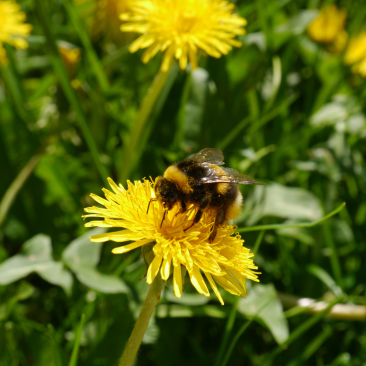
1. Go wild
Not only are we green fingered, we are also a nation of nature lovers, with 87% of people in the UK wanting to attract more wildlife to our gardens. One of the most important thing to remember is that nature isn’t neat. Tidy gardens leave little space for wildlife to flourish. Allowing areas of your garden to grow wild and letting nature take its course will help to attract wildlife. Focus on planting native and nectar-rich shrubs and plants to support bees, butterflies, birds, and other species. The RSPB have put together lots of useful tips on gardening for wildlife here.
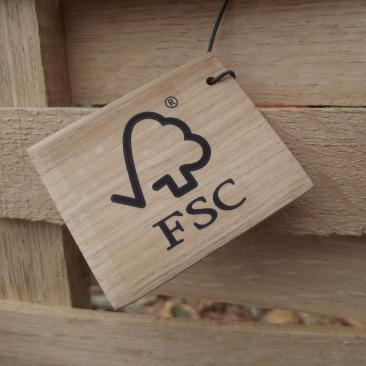
2. Choose forest friendly products
On top of wildlife friendly gardening, another step you can take to be even greener is to ensure you use forest friendly garden products. Many garden products are made from wood or other forest-based materials, like bamboo and rattan. If not sourced responsibly, they can contribute to deforestation or support poor forestry practices. Once you add up of all the fences, decks, sheds, planters, and garden furniture sets there are in the UK alone, it is easy to see how our choices as consumers can impact forests around the world.
That’s where the FSC label comes in; this lets you know that products made from wood or other forest-based materials support responsible forestry. Keep an eye out for our logo when you shop to make sure that the garden products you buy hep to ensure forests for all forever. We have put together a list of brands and retailers selling FSC-certified garden furniture, sheds, planters, gardening tools and more below.
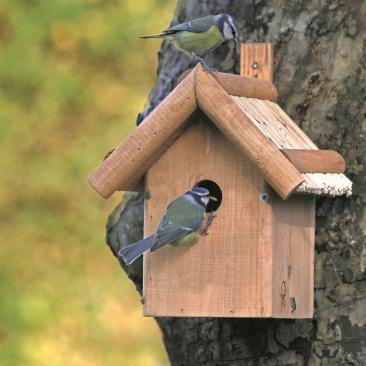
3. Give nature a home
Give nature a home by providing shelters in your garden. From bird boxes to bug hotels and hedgehog homes, there are plenty of ways you can make your garden that little bit more attractive for wildlife. If you are buying wildlife homes or making your own, don’t forget to make sure that any wood has been sourced responsibly. See the list below to find some suppliers of FSC-certified wildlife homes.

4. Make your own (or use responsibly sourced) compost
Home composting is the most environmentally friendly way of dealing with your garden and kitchen waste. Plus, you can save money on buying compost and compost heaps are excellent habitats for wildlife. If you’re not a fan of the standard plastic compost bins, Forest Garden and Rowlinson Garden Products make a range of FSC-certified wood compost bins.
If you don’t have space for a compost bin or need to buy compost for another reason, you can buy compost and mulch made from FSC-certified bark, see the list of suppliers below.
If buying other types of compost, remember to avoid using compost which contains peat . Peat is extracted from peatlands, which are important habitats for wildlife and their conservation and restoration is vital in tackling the climate crises. Find out more about peat-free compost here.
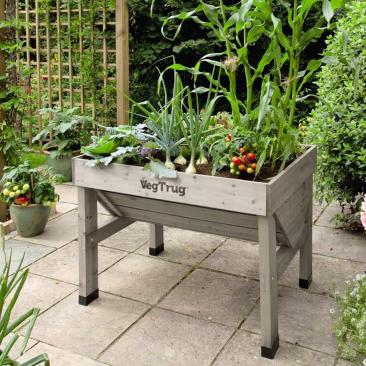
5. Grow your own food
If you have the time and space, devoting a patch of your garden to grow your own fruit and veg can help to reduce your environmental impact, it can be cheaper than buying food and it usually tastes better when you know you have grown it yourself! If you’re in need of tools, planters or raised beds, just remember to make sure they are FSC-certified so you can grow your food with a clear conscience, knowing that the products are made with materials from well-managed forests and/or from recycled sources.

6. Use plastic free alternatives
Eco-friendly alternatives to plastic are becoming increasingly popular in every aspect of our lives and gardening is no exception. Seed trays, plant labels and plant pots are mostly plastic but there are lots of alternatives out there. For example, you can buy seed trays made from FSC-certified natural rubber or plant fibre, which are biodegradable, by Wildlife World and Fallen Fruits which you can find in garden centres. Rather than plastic plant labels, you can make your own from ice-lolly sticks or buy labels made from FSC-certified wood, like these beech plant labels from Burgon & Ball. For more ideas, the RHS has put together some excellent tips on plastic-free gardening here.
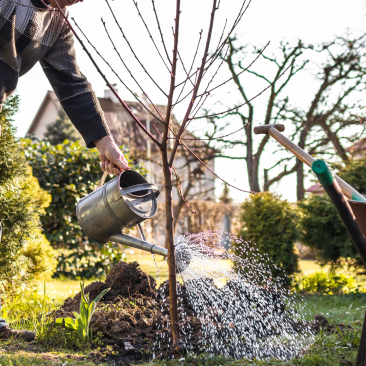
7. Plant trees
Trees are essential for people, wildlife, and the planet. They purify air, help to combat climate change and planting native trees can provide food and shelter for pollinators, birds, and other wildlife. Plus, they provide some much-needed shade during the warm summer months. If you have enough space to do so, the Woodland Trust have put together this useful guide to help you select the right tree and shrub species for your garden.
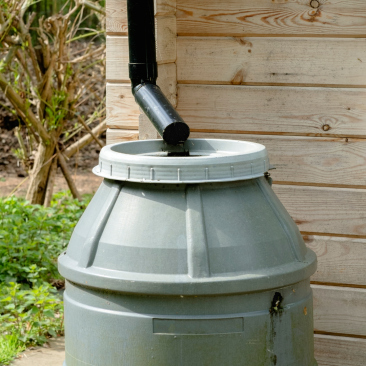
8. Collect rainwater
Water resources in the UK are under pressure from climate change and population growth. In 2022, the UK experienced its driest year since 1976, leading to hosepipe bans in some areas of the country. Plants do not need clean tap water, which is extracted from our rivers and waterways, so why not install a water butt to collect and use rainwater in your garden instead? Not only will you save water, but you will also save on your household bills.
Where to find FSC-certified garden products
Why should you look for the FSC logo when you shop?
- FSC-certified forests are managed to strict environmental, social, and economic standards, with consideration for people, wildlife, and ecosystems.
- The FSC label enables shoppers to choose wood, paper and other forest products made with materials from well-managed forests and/or recycled sources.
- The FSC logo is the world’s most trusted mark for responsible forestry.
We have listed some retailers and brands below who sell FSC-certified garden products, this is not a comprehensive list, but highlights some of the names you are likely to come across when looking for garden products. Bear in mind that some may stock both certified and uncertified products – look out for the FSC trademarks in product descriptions. All the companies listed below hold either FSC certification or promotional licence. Anyone can sell products that have been supplied to them with FSC certification. But only FSC certificate holders and promotional licence holders are authorised to use the FSC trademarks to promote them. Buying from a certificate holder or promotional licence holder ensures that their promotion of FSC-certified products is being monitored by an independent auditor or FSC office. For more information on choosing FSC-certified products, including how to tell if a product is FSC certified and how to identify FSC-certified products online, click here.
-
FSC-Certified sheds, decking, fencing and garden structures
If you are looking for wooden fencing, garden storage, or structures such as wooden garden arches or gazebos, you can find FSC-certified products from:
-
FSC-certified garden furniture
You can buy sustainable wooden patio sets, garden benches, deck chairs, and other garden furniture from:
-
FSC-certified planters and raised beds
For responsibly sourced wooden planters and raised beds:
-
FSC-certified garden tools
If you prefer to use garden tools with wooden handles, look for tools made by:
-
FSC-certified wildlife homes
For wooden bird tables, bird boxes, bug hotels, and other wildlife habitats, there are lots of options to choose from:
-
FSC-certified wellies
See our previous article on where to find FSC-certified wellies made from natural rubber.
-
FSC-certified compost, mulch, and bark
Not featured above? Do you sell FSC-certified garden products and hold FSC certification or a promotional licence? Or maybe you’ve bought from a certified/licensed supplier and would like to recommend them? Click here to get in touch with a link to the website and we’ll be happy to include your company or recommendation.

